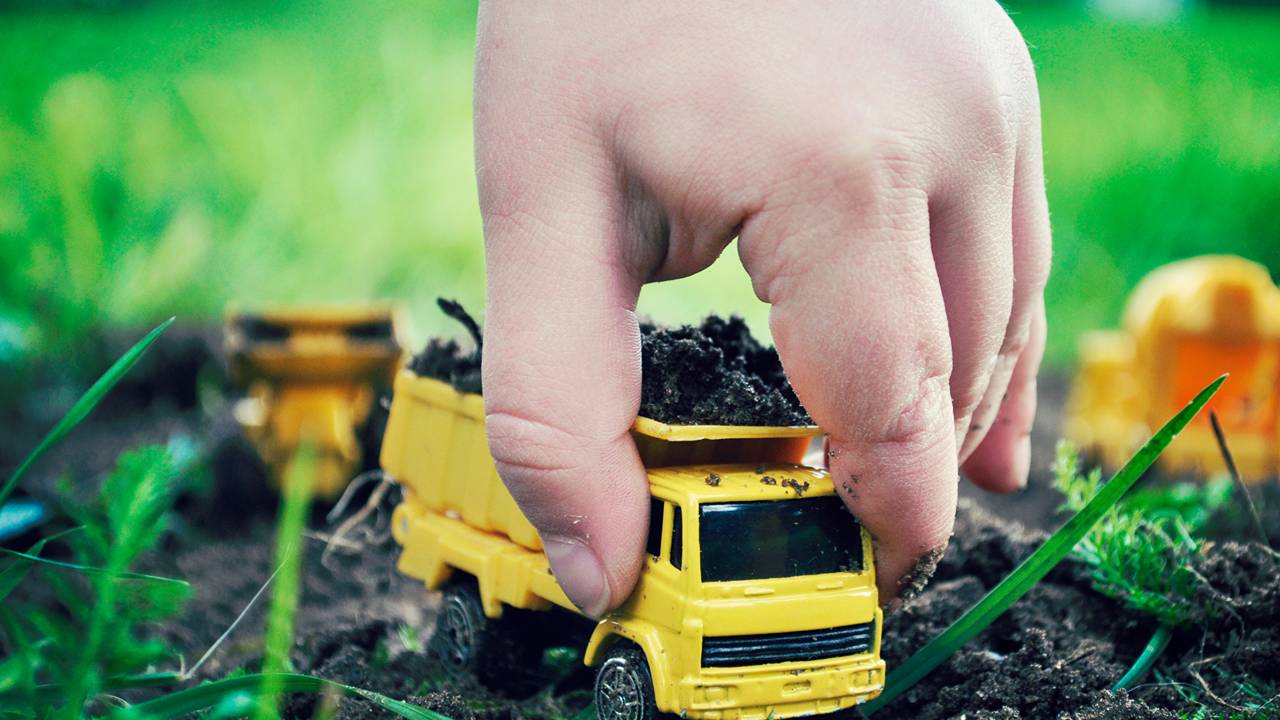Biocurious: With its ‘molecular Lego’ approach, Arovella is building hope for cancer patients one brick at a time
Inspired by the world’s great Lego Masters, Arovella is taking a brick-by-brick approach to building its unique cancer immunotherapy program.

Stockhead
Don't miss out on the headlines from Stockhead. Followed categories will be added to My News.
Arovella is one of only a handful of biotechs pursuing CAR-iNKT immunotherapies – and is the only ASX-listed exemplar
The “soldiers of the blood stream”, CAR-iNKT cells offer potential advantages including easier off-the-shelf therapies
The company plans to seek US FDA approval for its first-in-human trial of blood cancer patients
Arovella Therapeutics (ASX:ALA) CEO Dr Michael Baker likens his company’s cell therapy programs to building a Lego creation by adding new elements, one brick at a time.
“I refer to it as molecular Lego,” he says. “We get the pieces of DNA we like and add them to the baseplate of cells.”
Arovella is all about its core CAR-iNKT tech, which promises to deliver more effective off-the-shelf cancer immunotherapies.
CAR-Ts are chimeric antigen receptor T-cells – and they have been around for a while.
iNKTS are invariant natural killer T-cells, which could open a new frontier of cancer immunotherapy by overcoming some of the problems of CAR-Ts.
Arovella is the only ASX-listed biotech delving into CAR-iNKT therapies – and one of only a handful globally.
This quarter, the company expects to apply to the US Food & Drug Administration (FDA) to launch its first-in-human trial, enrolling non-Hodgkin’s lymphoma and leukaemia patients.
"Soldiers of the blood stream"
iNKTs are elite beasts, accounting for a mere .01% to 1% of blood immune cells.
In comparison, T-cells account for around 70% and natural killer (NK) cells another 15-20%.
Dr Baker says because of their low propensity, iNKT cells were seen as having a less important role.
The reality could be quite the opposite.
Baker points to malignancies such as colorectal cancer, head and neck squamous cell carcinoma.
“If these patients have low iNKT cell counts, the prognosis is quite poor,” he says.
“That tells us this tiny population of cells is influencing the prognosis of these solid tumours.
“We see there’s something unique and important about them.”
More than extra ‘i’ and ‘t’
Baker says iNKT cells are distinct from the more well-known natural killer, or NK, cells. It’s more than a case of adding an extra ‘I’ and “T”.
Both T-cells and NK cells have limitations.
“T-cells can’t be used off-the-shelf unless they are genetically engineered, which requires an extra step,” Baker says.
“NK cells can be given from one person to another, but the desired level of activity has not been seen to date.”
NK cells are capable of quickly eliminating things in the body that are out of place, such as a tumour cells.
“But iNKT cells go a step further by influencing a longer-term immune response and activating other components of the immune system.”
Given the different way in which iNKT cells recognise foreign objects, they are less likely than CAR-Ts to promote graft-versus-host disease when given from a healthy donor to patients.
Pret a porter cells supersede bespoke approach
To date, the FDA has approved seven CAR-T therapies – all for blood cancer – but no iNKT treatment.
According to Biomed Central, more than 120 clinical trials globally are investigating CAR-NK therapies, for blood and solid cancer.
ASX-listed CAR-T developers include Imugene (ASX:IMU), AdAlta (ASX:1AD), Prescient Therapeutics (ASX:PTX) and Chimeric Therapeutics (ASX:CHM).
But CAR iNKTS research remains a rarefied field.
Most of the treatments are based on using the patient’s own cells - the autologous approach.
This method is more bespoke but takes longer, is more expensive and uses potentially compromised cells.
Arovella seeks to avoid the problems with the allogeneic method, by which cells are derived from healthy donors. The doses are deep frozen and shipped to clinical sites when needed.
“Once we get the manufacturing engine up for one program, future programs using different bits of Lego become a lot easier,” Baker says.
Apart from ‘pret a porter’ cells, Arovella’s other objective is to develop a therapy for solid cancers, which account for 90% of all cancers.
Girding for first-in-human trial
The phase 1 trial will enrol non-Hodgkin’s lymphoma and leukaemia patients exhibiting the CD-19 biomarker, the target the company’s CAR-iNKT cells recognise.
While the planned trial is under the US ‘investigational new drug’ pathway, the company intends to carry out the initial dose escalation locally.
The study then would expand to US sites.
“The dose escalation stage would enrol about 12 patients, expanding to 30-32 in the second leg,” Baker says.
“The patients will have a variety of blood cancers caused by B cells, the common element being they express the CD-19 on their surface.”
Arovella also has a solid tumour program, for indications including gastric cancer.
Building the asset, brick by brick
Brick by brick, the company has acquired auxiliary programs to make the tech relevant to wider cancers.
Last Monday, Arovella announced an exclusive option with the Baylor College of Medicine to licence two novel CAR receptors.
These receptors target solid tumours, including neuroblastoma (highly prevalent in children) and hepatocellular carcinoma (liver cancer).
The option also includes manufacturing technology and iNKT cell genetic modifications that “may enhance Arovella’s CAR-iNKT cell platform”.
Both CARs have been studied in human clinical trials, reducing the need for extensive preclinical testing.
Arovella has six months to decide whether to exercise the option, at an undisclosed price.
In late 2023, Arovella signed an exclusive deal with Sparx Group, to develop a world-first iNKT cell therapy targeting a Claudin 18.2.
Claudin 18.2 is expressed in gastric cancers, gastroesophageal junction and pancreatic cancers.
The deal involves an equity-based upfront licensing fee and “industry standard” cash and equity milestones.
The company is on the lookout for other bolt-on programs to expand its indications or increase the potency of the treatment.
“For the Lego to work, the marker needs to be on the surface of the cancer cells and it also need to be absent from healthy cells," Baker says.
The US vibe: alert but not alarmed
Baker is keeping a clear head about the sweeping changes affecting the US healthcare sector, which this week was manifested in Donald Trump’s intention to reduce US drug prices by as much as 80%.
“We can see there will possibly be more big changes to the FDA and the National Institutes of Health," he says.
Last week, Vinay Prasad was appointed as the head of FDA’s Center for Biologics Evaluation and Research.
Given Prasad has a history of criticising the FDA, his appointment could result in stricter approval processes.
“It’s best to work with the information we have and remain level-headed and don’t assume anything,” he says.
“We don’t know stance on cell and gene therapies, but it may be quite promising. Until we have concrete information, we just continue to put our best foot forward.”
Don’t Lego of the dream
With cash of $23 million after a recent $15 million raising, Arovella is funded to fully enrol the phase I study and progress to interim reporting stage.
It’s also enough to complete studies to enable an FDA appication to launch a Claudin 18.2 trial.
Meanwhile, Arovella shares have lost half their value since the start of the year.
Across the sector, many investors have been spooked by the failure of eye disease house Opthea’s two phase III trials.
Another reason was that during Arovella’s recent placement, a cornerstone Australian-based private investor failed to settle.
“It’s not going to go unnoticed with a public company when a cornerstone investor doesn’t settle,” Baker says.
“Despite the deteriorating market sentiment, we went back to the market to complete the capital raise.
“We are now incredibly well funded with great programs coming and we look forward to getting more milestones ticked off and restoring shareholder value.”
With the building blocks in place, can Baker look forward to adding ‘Lego Master’ to his achievements, which include a doctorate in biochemistry?
“We will find out in 12 months’ time when we have the data coming through from phase I,” he says.
At Stockhead, we tell it as it is. While Arovella is a Stockhead advertiser, the company did not sponsor this article
Originally published as Biocurious: With its ‘molecular Lego’ approach, Arovella is building hope for cancer patients one brick at a time


